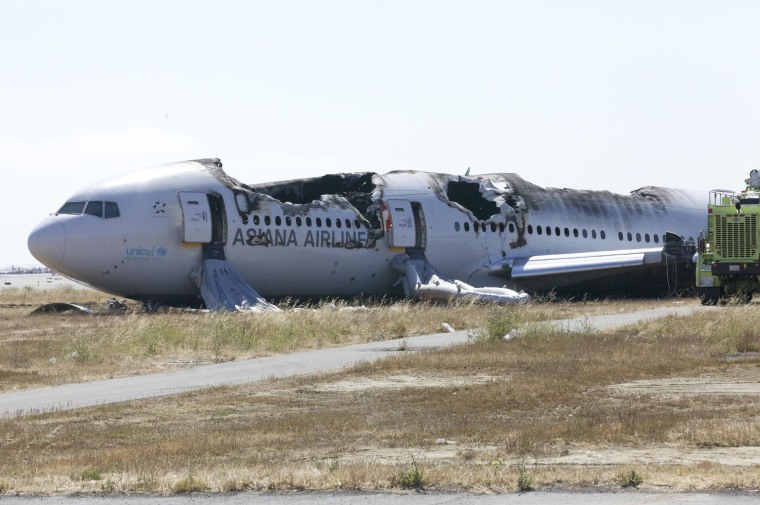Executives of South Korea's Asiana Airlines say they're altering its pilot training program to encourage communication among senior managers and subordinates after a July plane crash in San Francisco that killed three people and injured aboout 180.
A U.S. hearing into the crash revealed one of the pilots said he did not feel he had the authority to abort a low-speed landing as individuals at a "higher level" had to make that decision, Reuters reported.
"It's a reality that within our country there is a leaning toward a patriarchal culture, and many pilots work and fly within the strict military order," Asiana's chief executive, Kim Soo-cheon, said Monday at a press conference in Seoul, Reuters reported.
Kim's comments Monday are his first public statements about Asiana's corporate culture since the Boeing 777 crash-landed on a runway at San Francisco International Airport.
The changes at Asiana, South Korea's second-largest carrier, follow a July 9 CNBC.com article that outlined South Korea's aviation industry, which already had faced skepticism about its safety since a few deadly crashes beginning in the 1980s.
The CNBC.com article detailed Korea's cockpit culture and aviation training that stresses a deference to seniority, which can make it challenging for younger employees to speak up in workplaces without repercussions. Many Korean commercial pilots also are air force veterans, who have been trained in a military culture that again emphasizes hierarchy.
"If that's how he [the pilot] thinks, that's because of how he was trained, not because he's Korean," David Greenberg, president of Compass Group, Aviation Consulting and Development, based outside Chicago, told CNBC.com late Monday.
